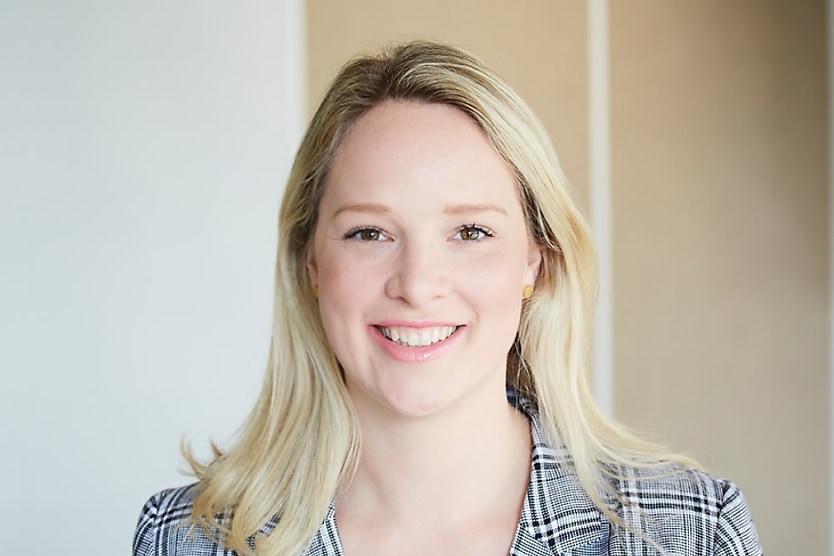The federal budget is prioritising women in the workplace and the legal sector is following suit
SHARE THIS ARTICLE

Treasurer Jim Chalmers handed down the federal budget last month and with it a Women’s Budget Statement positing that the budget is aimed at “proactive, long-term change to advance gender equality”.
The legal sector has historically held a reputation as an industry known for its long hours and a predominantly male workforce. But as the last national profile uncovered, the face of the legal sector is changing thanks to an influx of female solicitors tipping the scales.
This has been really great to see but it is important to note that as more women enter the legal workforce, we need to make sure that there are systems in place that support their personal and professional development throughout all stages of life and career.
The recent budget is a good indication that public policy supporting women will be front of mind on a national scale and we need to make sure the legal sector is keeping pace.
As national HR manager at Macpherson Kelley, I believe firms have a responsibility to support this cultural shift with internal policies and training to keep the momentum going. Earlier this year, Macpherson Kelley announced a number of policies and changes addressing diversity, equity and inclusion. These included increasing our paid parental leave policy to up to 20 weeks, and addressing the gender pay gap with the firm contributing superannuation on both paid and unpaid leave.
Childcare subsidies to fortify the female workforce
The federal budget contains a number of incentives to increase female presence in the workforce and alleviate some of the pressures that might keep women from returning to work during childbearing years.
In his budget speech, Treasurer Jim Chalmers announced that: “July next year, early childhood education and care will be more affordable for more than 1.2 million eligible Australian families who will benefit from higher subsidies.”
“Cheaper childcare … will increase the paid hours worked by women with young children by up to 1.4 million hours a week in the first year alone. [An] equivalent of 37,000 extra full-time workers.”
I welcome the Albanese government’s investment in childcare subsidies for working families and their commitment to 26-weeks paid parental leave by July 2026.
Childcare and flexibility are big ticket items when it comes to retaining and attracting female talent. The childcare subsidies and in conjunction with the flexibility we offer our staff will hopefully see less women leaving the profession – either altogether or out of private practice.
It’s also important to acknowledge the benefit for legal support roles such as HR, IT and administrative staff. I think the changes will encourage families to even the parenting load and, the more options there are available to families, the more diverse and inclusive the workplace will be.
Fostering female leaders in law
Dubbed the ‘motherhood penalty’, women’s earnings are reduced by an average of 55 per cent in the first five years of parenthood according to the Treasury Round Up 2022. The financial ‘penalty’ of motherhood could also have flow on effects to the gender balance of leadership roles and is something Macpherson Kelley would like to see redressed over the next five years.
In terms of leadership, our managing principal lawyers are an even split – two male and two female, one of which works part-time. We also now have Jac Phillips who brings incredible breadth and depth to our board and an upcoming education program to help foster an environment where a diverse group of future leaders can thrive.
We’re going in the right direction but our executive team and DEI committee are looking at ways we can further encourage growth and understanding.
Addressing a suite of DEI initiatives, Macpherson Kelley has put together a DEI committee, divided into subsections to lead the discussion and contribute to the direction of the firm’s formalised DEI commitment. One of the committee’s projects has been an internal pulse survey to better understand the firm’s attitude on DEI initiatives.
We recently surveyed our staff on how important it is to work in an inclusive environment and the results were overwhelming. 79.8 per cent of staff who completed the survey said they agreed or strongly agreed that working for an employer who champions DEI is important to them.
We know and the government knows that inclusivity has a massive cultural, safety and economic benefit.
As we continue to invest time, education and support in this space it’s integral to make sure this journey is undertaken and driven by our people.
I encourage HR professionals, legal or otherwise, to take a hard look at what they are doing to change the narrative. Are they taking their people along for the ride? If the answer is no, they’d better act quickly or expect their employees to start looking for workplaces that value inclusivity and belonging.
Olivia Holmes is the national HR manager at Macpherson Kelley
